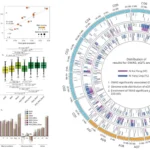Key Points:
- A 71-year-old man in China is recovering well two weeks post-surgery, the first living person to receive a liver transplant from a genetically modified pig.
- Sun Beicheng led the procedure, an 8-hour surgery that replaced a diseased liver lobe with a genetically modified pig liver.
- It provides insights into xenotransplantation as a potential solution to organ shortages. Pig liver had ten modifications to reduce rejection risk.
- There are no signs of organ rejection, bile production is increasing, and liver function is normal. Researchers aim to use xenotransplantation to save more lives.
A 71-year-old man in China has made medical history as the first living person to receive a liver transplant from a genetically modified pig. The groundbreaking procedure was performed at the First Affiliated Hospital of Anhui Medical University and led by surgeon Sun Beicheng. More than two weeks post-surgery, the patient is reported to be “doing very well,” according to Sun.
While detailed information about the procedure remains limited, the apparent success has been met with optimism within the medical community. “It is very exciting news,” commented Burcin Ekser, an Indiana University School of Medicine transplant surgeon.
This liver transplant marks the latest advancement in xenotransplantation—the transfer of organs between different species. Since early 2022, several other pioneering transplants of pig hearts, kidneys, and thyroid have been performed on four people. While three recipients died within months due to pre-existing health issues, one individual who received a pig organ in mid-April remains alive.
The transplants provide valuable insights into the feasibility of using animal organs to address the critical shortage of human donor organs. Thousands of people die each year while waiting for suitable organ donors, and researchers hope xenotransplantation can offer a viable solution.
This year has seen a surge in experimental pig liver transplants. In January, a U.S. team connected a genetically modified pig liver outside the body of a clinically dead person. In March, surgeons at Xijing Hospital in Xi’an transplanted a genome-edited pig liver into another clinically dead individual for 10 days with no signs of rejection. Earlier in May, another Chinese team transplanted both a pig kidney and liver into a clinically dead person.
In the most recent case, the recipient had a large tumor on the right lobe of his liver, which made him ineligible for a human liver transplant. The tumor posed an imminent threat, leading the patient and his family to opt for the experimental xenotransplant. After securing ethical and transplantation committee approvals, the surgery took place on May 17 and lasted 8 hours. Surgeons replaced the patient’s right liver lobe with a 514-gram liver from an 11-month-old genetically modified miniature pig.
The pig liver underwent ten genetic modifications to reduce rejection risk and began secreting bile immediately after blood flow was re-established. By day 13, bile production increased from 10 mL to 200-300 mL daily. Tests have shown no signs of organ rejection, and the liver is functioning normally, producing essential proteins.
Jay Fishman, a transplant infectious disease specialist at Massachusetts General Hospital, noted the positive signs of the liver’s function. While cautioning about potential long-term rejection, Fishman acknowledged that liver transplants tend to experience less rejection than kidneys, hearts, or lungs.
The success of this transplant may pave the way for further advancements, potentially genetically modifying pigs to produce human versions of critical proteins. As researchers continue to monitor the patient’s progress, they hope the pig liver will support liver function until the patient’s remaining liver lobe can regenerate sufficiently.





